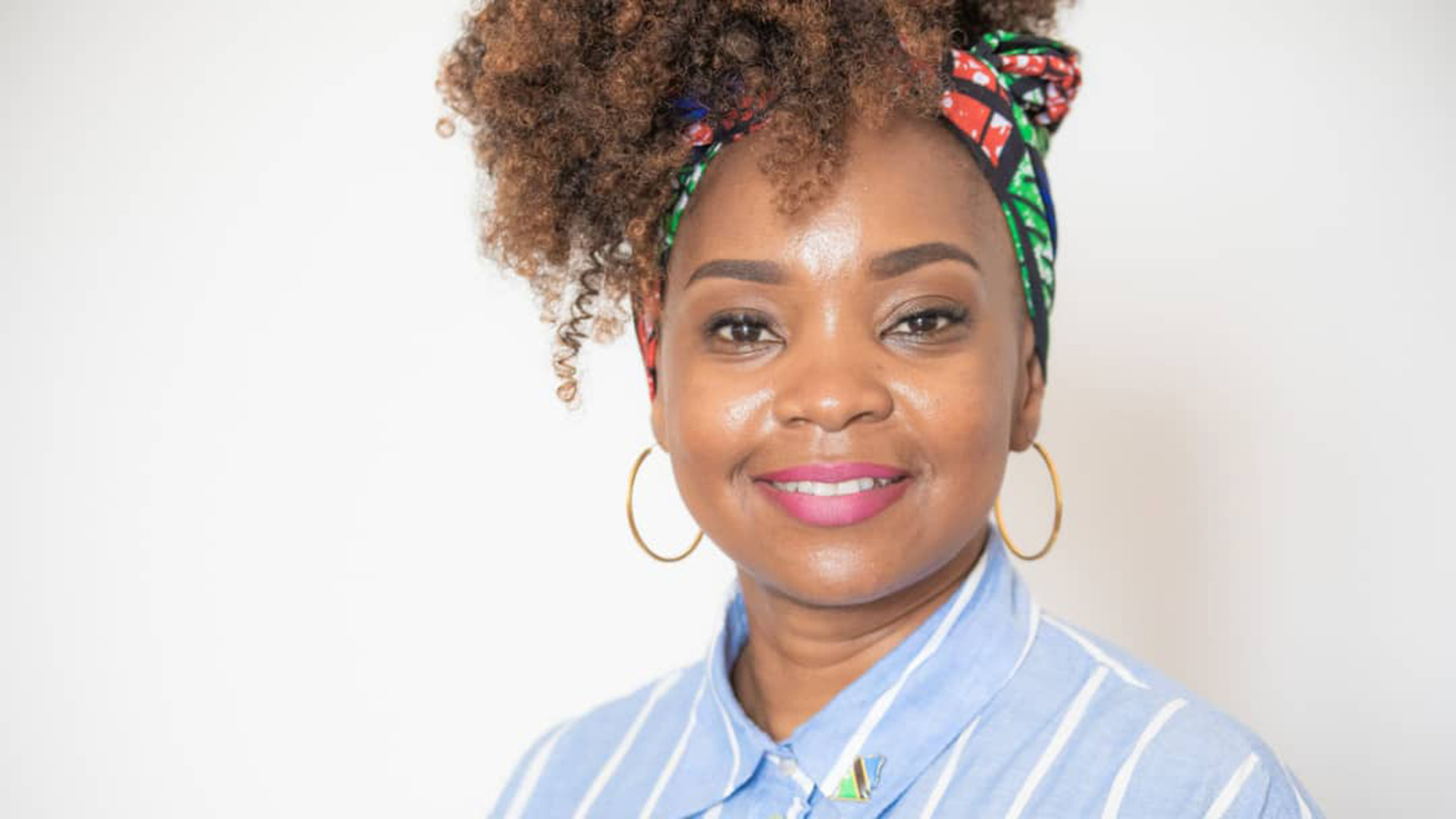Doreen Mushi ‘25PHD Provides Access to Quality Education for Vulnerable Children in Tanzania and is Inspired to Impact her Community Through Technology Education

A firm believer in providing access to quality education for vulnerable children and giving back to her community, Doreen Mushi ‘25PHD, a native of Dar es Salaam, Tanzania, founded TusomeInnovations, a social enterprise that develops digital educational resources for children with hearing disabilities in Tanzania.
She founded TusomeInnovations to help bridge the gap of inclusive education in her country with an aim to provide young learners with quality, educational resources and eventually increase literacy levels for the deaf population in Tanzania. Fifty-five percent of the deaf population in Tanzania, Mushi says, is illiterate, which means that this is one of the most vulnerable groups in the country. One of the more complex and challenging fields is inclusive education for children with disabilities, which drove Mushi’s purpose.
“Giving back is a way of being grateful to God for the community that raised me. There is an African proverb that says ‘it takes a village to raise a child,’ and I am confident that my community played a huge role in shaping my future,” she said.
In 2017, TusomeInnovations was named a local Tanzania Slush Global Impact Accelerator and was among the 10 finalists in the Slush Impact Showcase that was held in Helsinki, Finland.
Between TusomeInnovations and serving with Big Sisters in STEM, Mushi has served as a mentor to high school girls in her community, using her knowledge and expertise to help Tanzanian girls focus on education, building their self confidence and realizing their full potential. Through these programs, the girls are exposed to education, STEM and leadership development. Mushi says 12 of her mentees are now in universities and are leading change projects in the areas of education, health and information and communications technology.
In 2018, Mushi was recognized as one of “100 Tanzanian Sheroes,” by the Tanzania Sheroes Campaign, which is a program run by LaunchPad Tanzania with the aim of inspiring young girls through sharing profiles and stories of young women who have demonstrated positive impact in their personal endeavors, careers and community development.
“It is truly an honor to be recognized as one of 100 Tanzanian Sheroes. The recognition has not only motivated me to work harder, but it has also stimulated my desire to further align my personal success with purpose,” she said. “It is rewarding knowing that my journey is inspiring other Tanzanian girls, especially the young generation.”
Mushi has had a passion for STEM from a very young age, which inspired her to pursue a bachelor’s degree in computer science from the University of Dar es Salaam in Tanzania. She continued her education at LUT University in Finland, where she earned a master’s degree in computer science before earning a diploma in information and communications technology (ICT) and pedagogical development from Life Academy and Stockholm University in Sweden.
Being a global scholar, Mushi says, has had a significant impact on her cultural, educational and professional maturity. She has been able to learn and draw inspiration from people from diverse cultures and backgrounds. And she’s managed to connect and build lasting relationships with scholars with converging interests which will be beneficial in the future as she looks for collaborative opportunities in research and academic ventures.
With a passion for merging technology and education, Mushi was accepted into the Fulbright Foreign Student Program, which provides her with full financial support to pursue her doctoral degree. She is pursuing a Ph.D. in Teacher Education and Learning Sciences in the program area of study in learning design and technology from the NC State College of Education and working toward a graduate certificate in learning analytics.
“It is an excellent program that matches my professional background and my research interests. I have always wanted to pursue a graduate degree in a program that’s core focus is on learning design and technology,” she said. “I am captivated by the coursework which covers a range of disciplines from theoretical foundations to emerging technologies.”
Before starting the Ph.D. program, Mushi spent the past 10 years as an assistant lecturer and educational technologist at the Open University of Tanzania, where she developed an ICT research portal and an open educational resources (OER) module for academics in her country.
Mushi was attracted to the learning analytics graduate certificate program because of the rarity of the program, she says, which is specifically tailored for the field of education. The program provides a combination of foundational knowledge and hands-on experience with its tools.
Her current doctoral research is centered on exploring the sustainability of learning analytics projects in higher learning institutions, which was inspired by her experience in 2019 when she was awarded a UNESCO/Keizo Obuchi Research Fellowship. Through that program, Mushi participated in research trips to the University of British Columbia in Canada and Kyushu University in Japan, which allowed her to study the current trends in learning analytics and their implications for the future of teaching and learning.
Upon graduation, she plans to return to Open University in Tanzania as a well-versed instructional designer and faculty member. She says obtaining her Ph.D. will deepen her knowledge, sharpen her skills and improve her stance as a researcher in learning technologies. And she plans to develop elaborated learning analytics practices at her university.
“I am passionate about education because it is a very rewarding and impact-driven field. Being part of a workforce that unveils hidden knowledge and shapes the future of the next generation is what defines my motivation and commitment,” she said. “I enjoy exploring the integration of technology in education and the role it plays in enhancing teaching and learning experiences in academic settings.”
- Categories:


